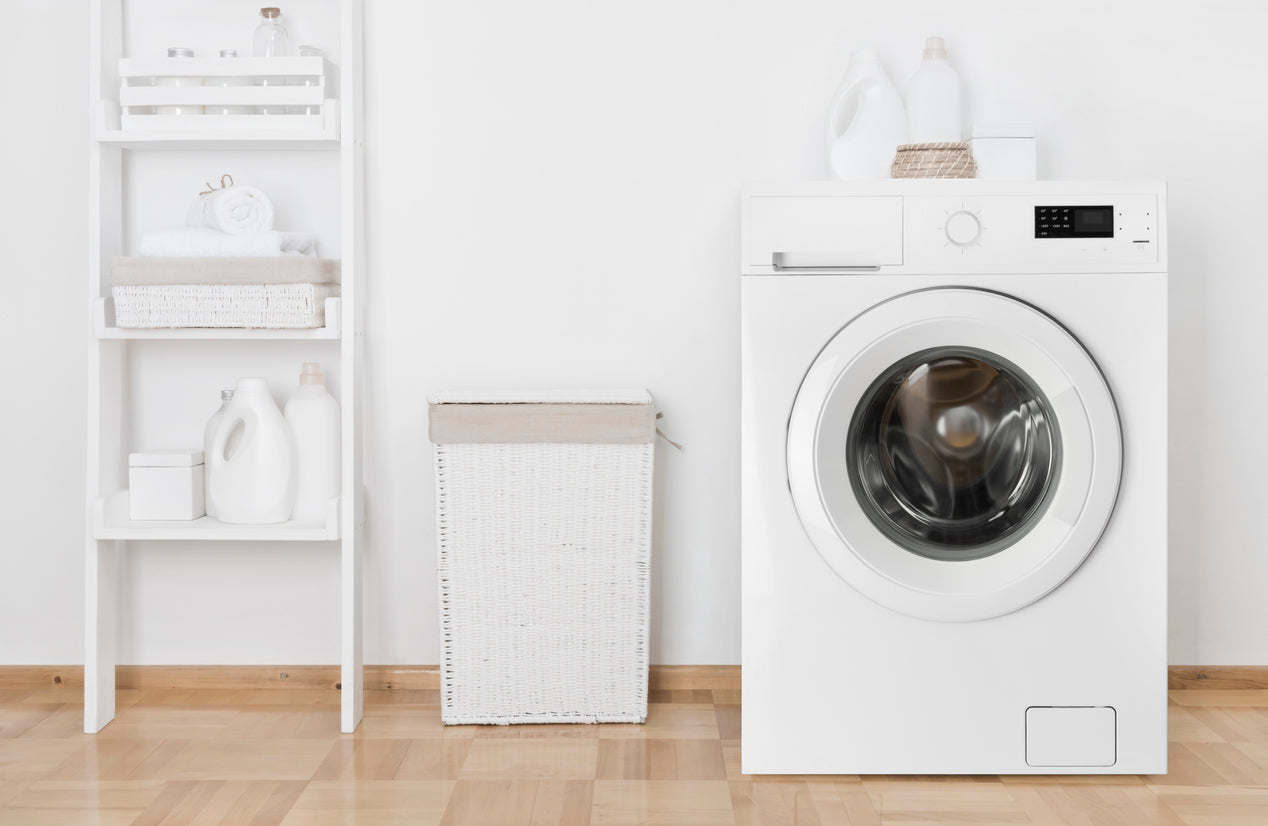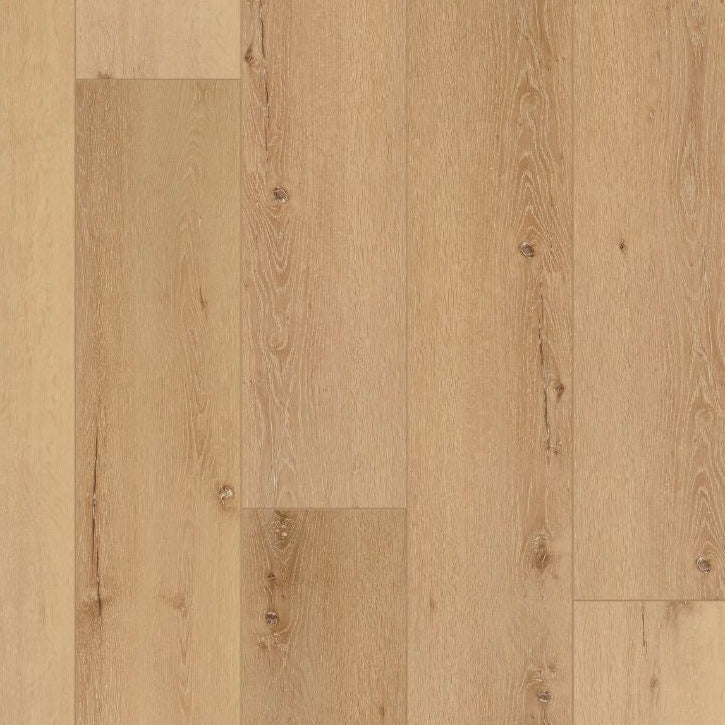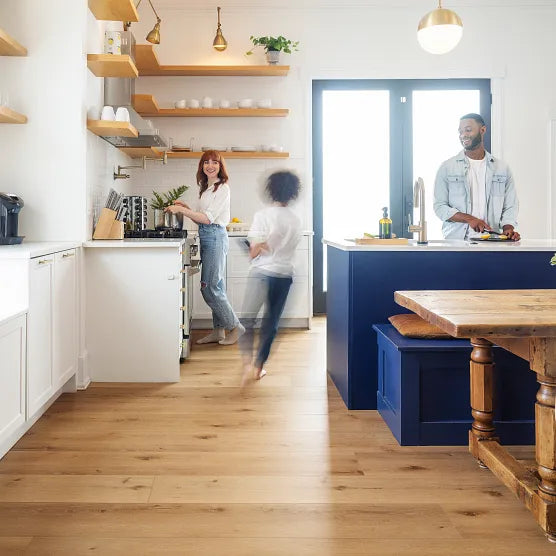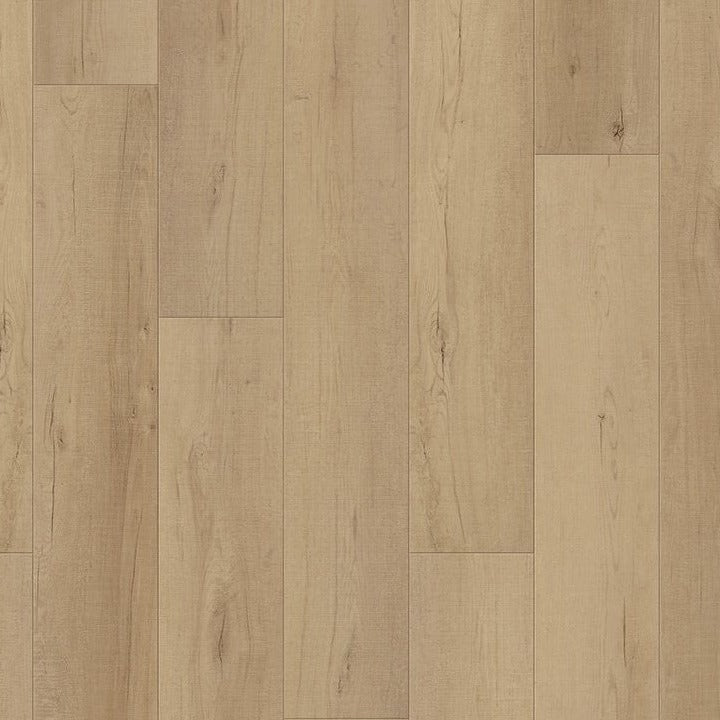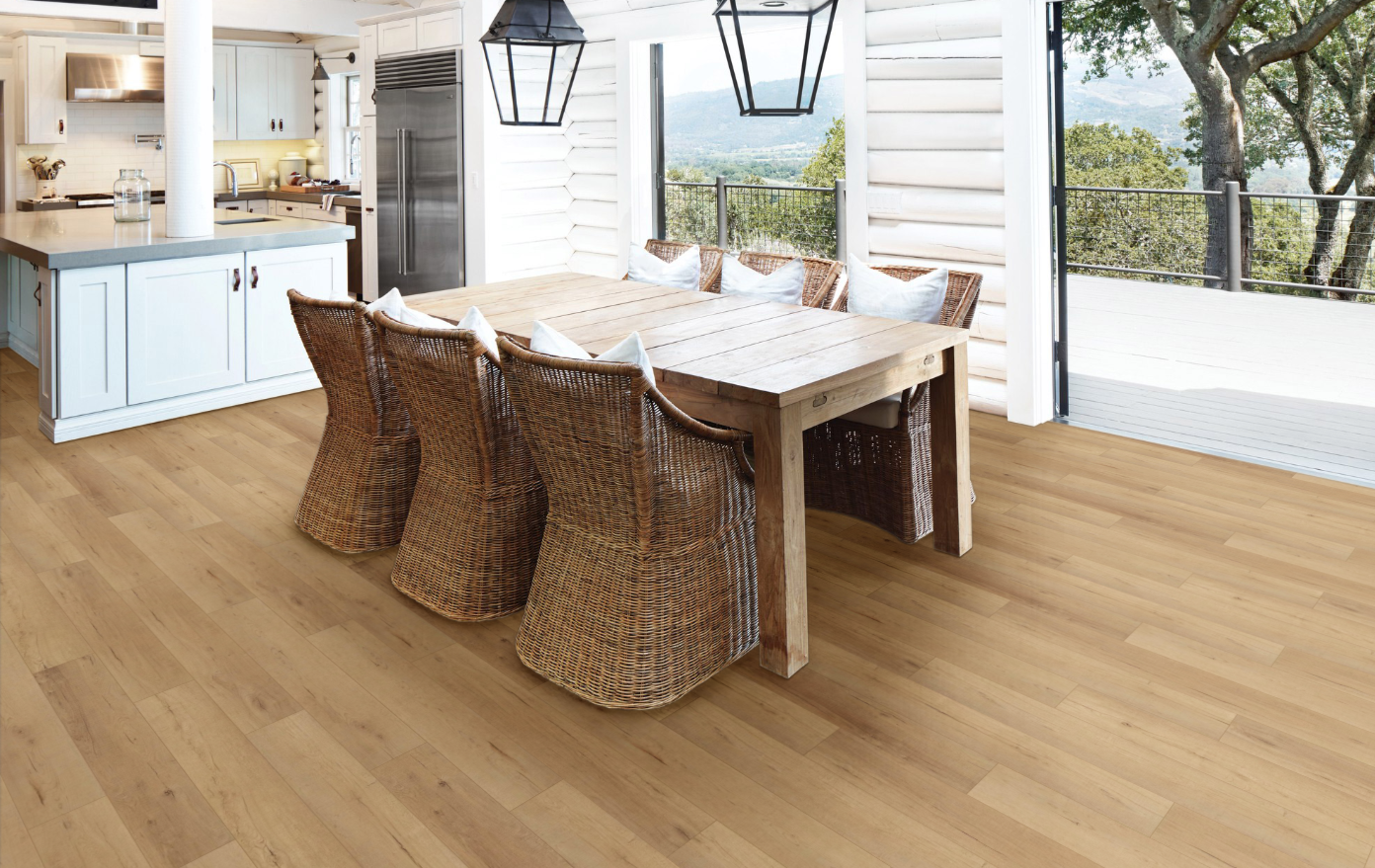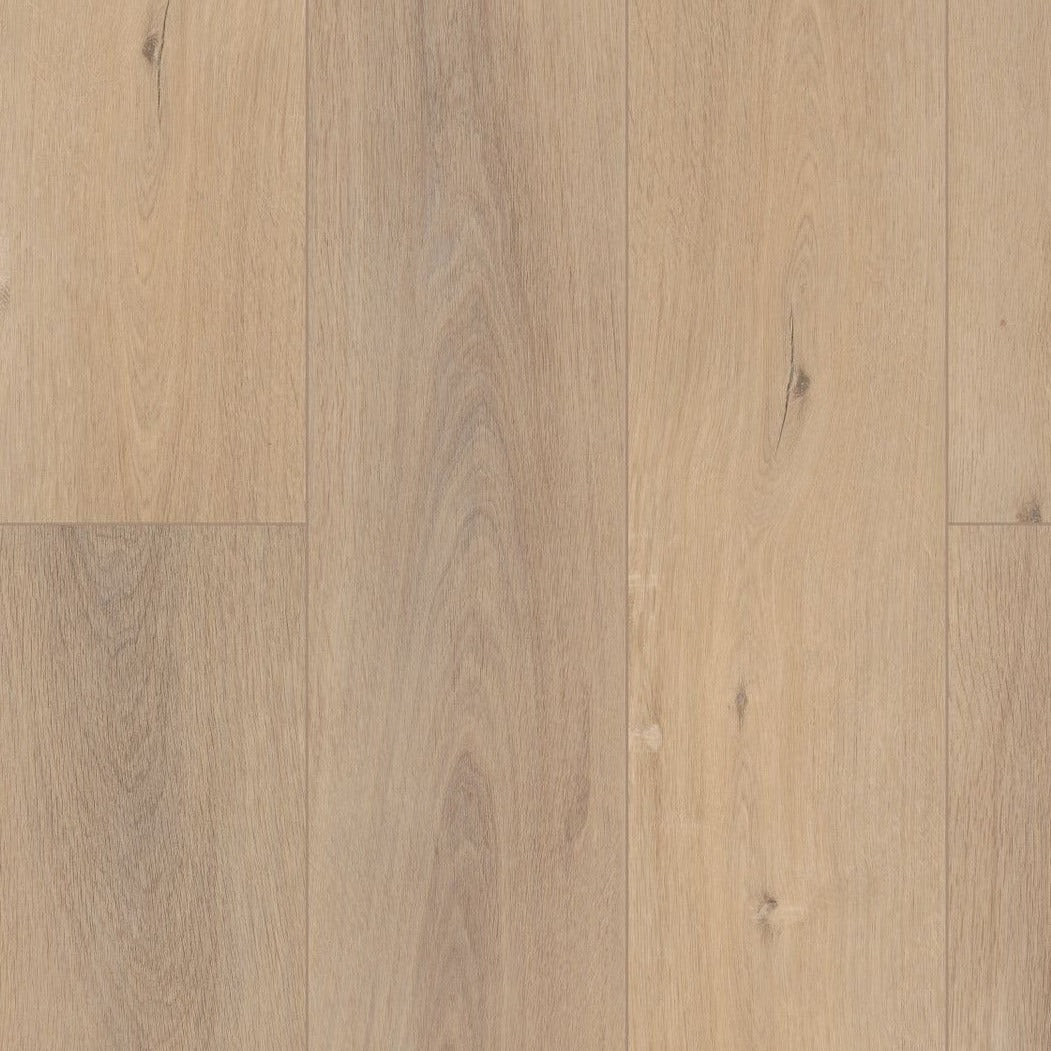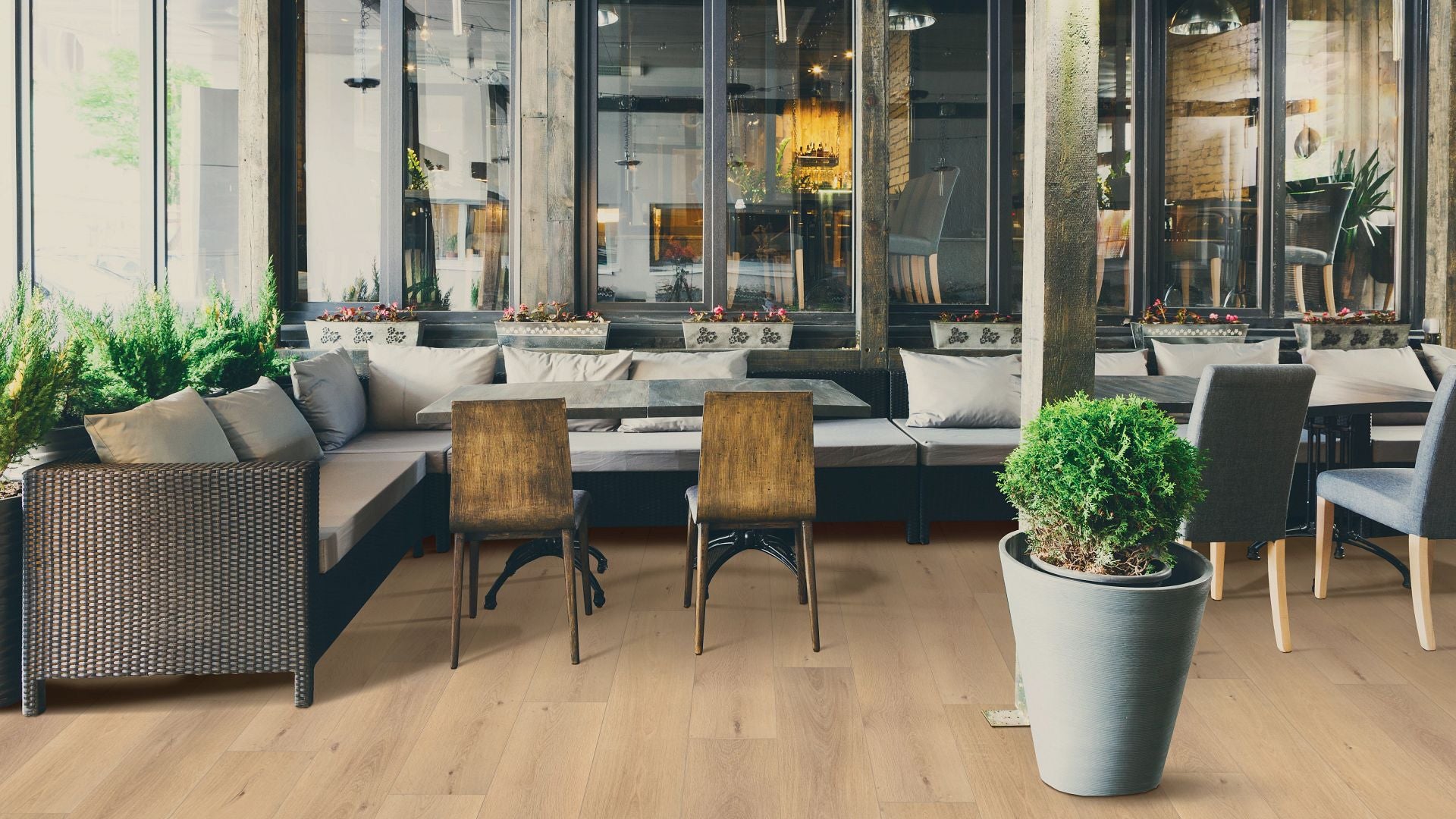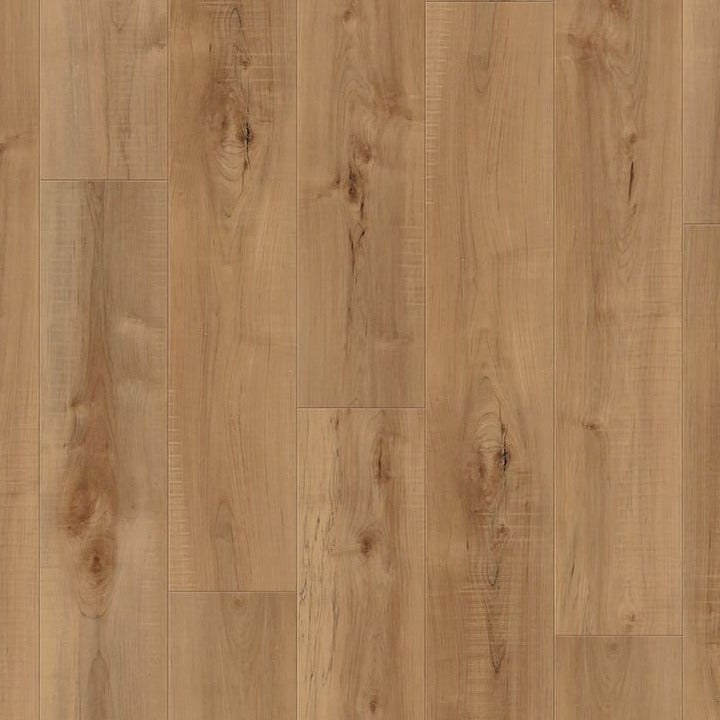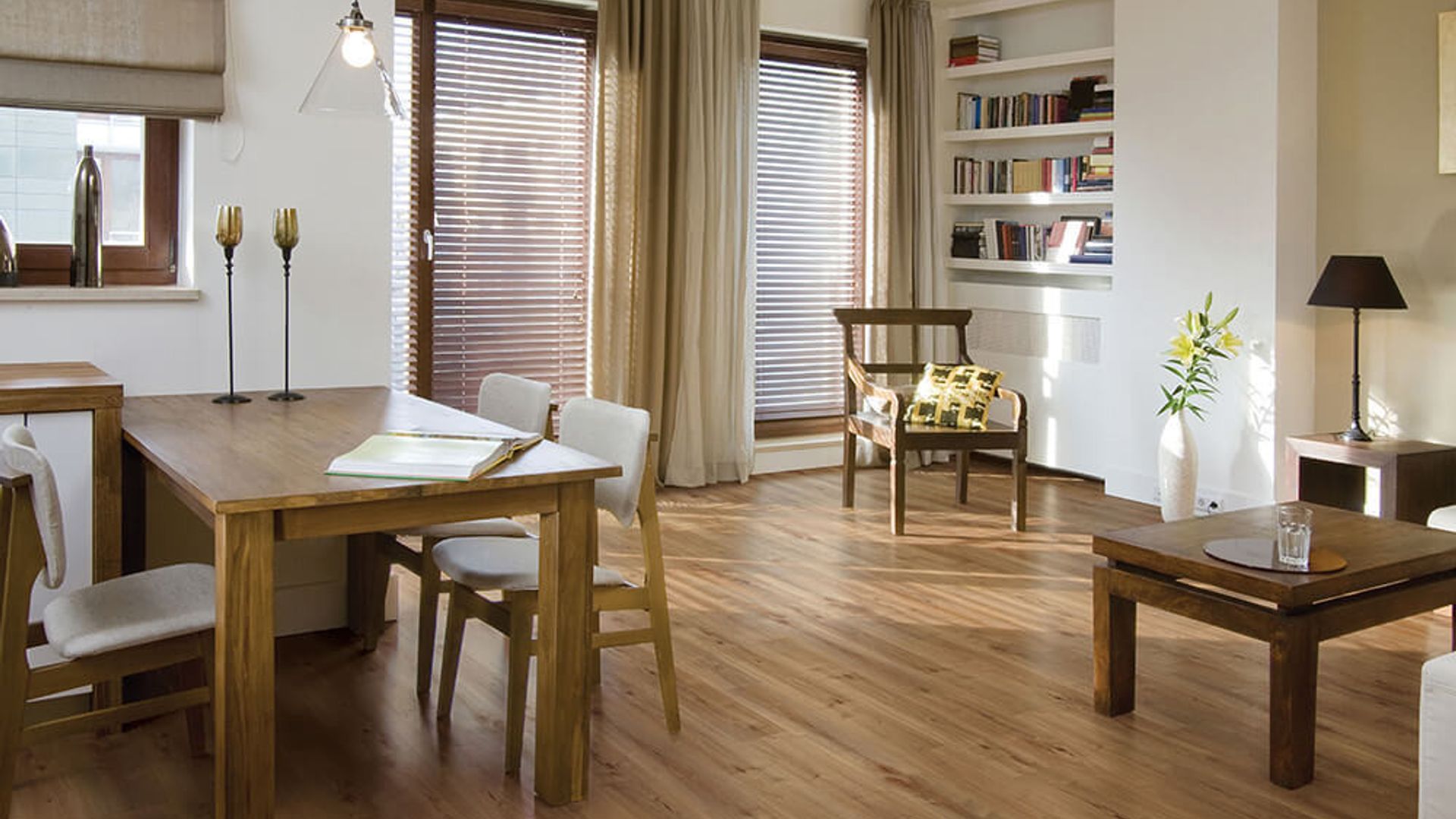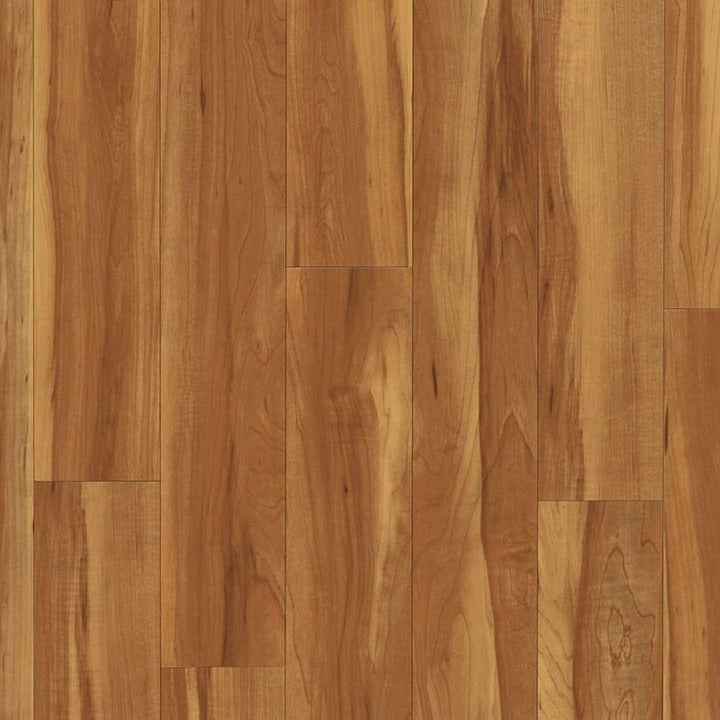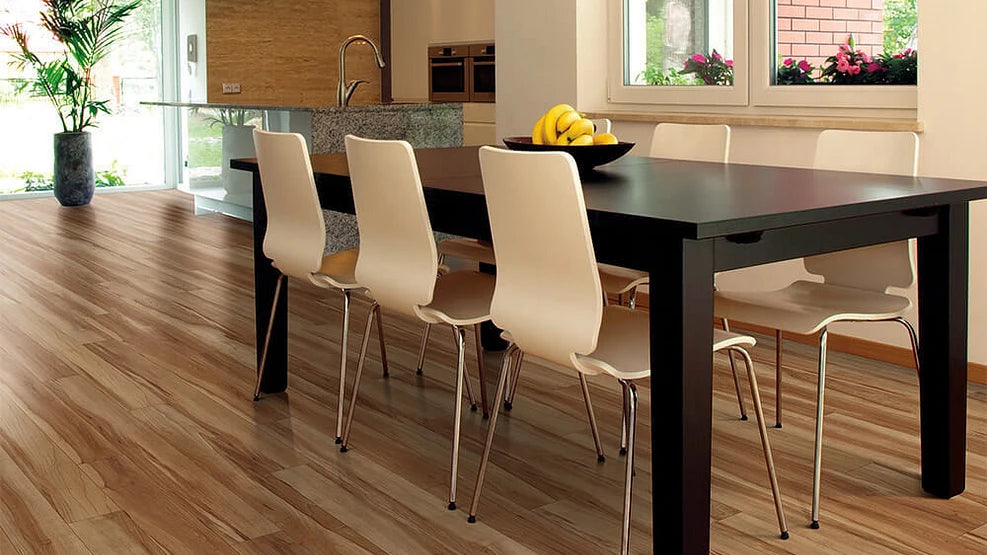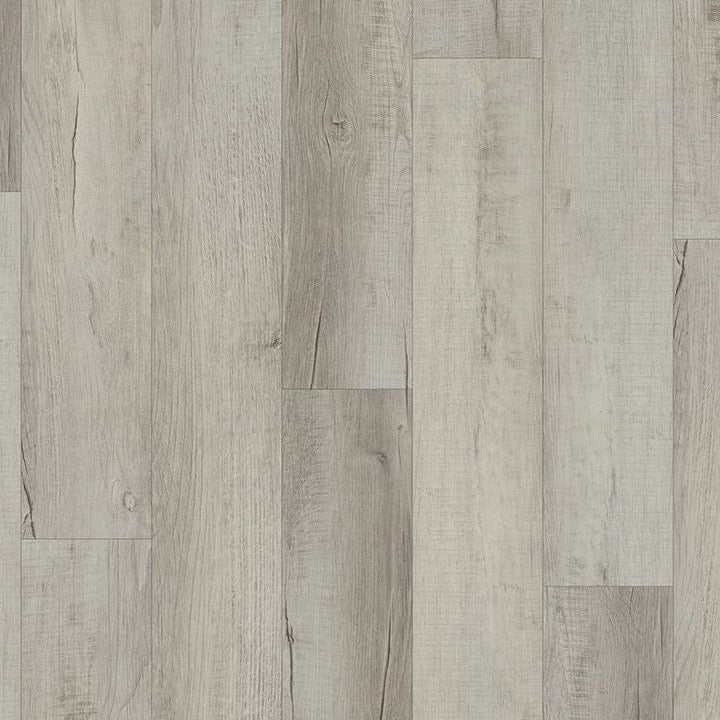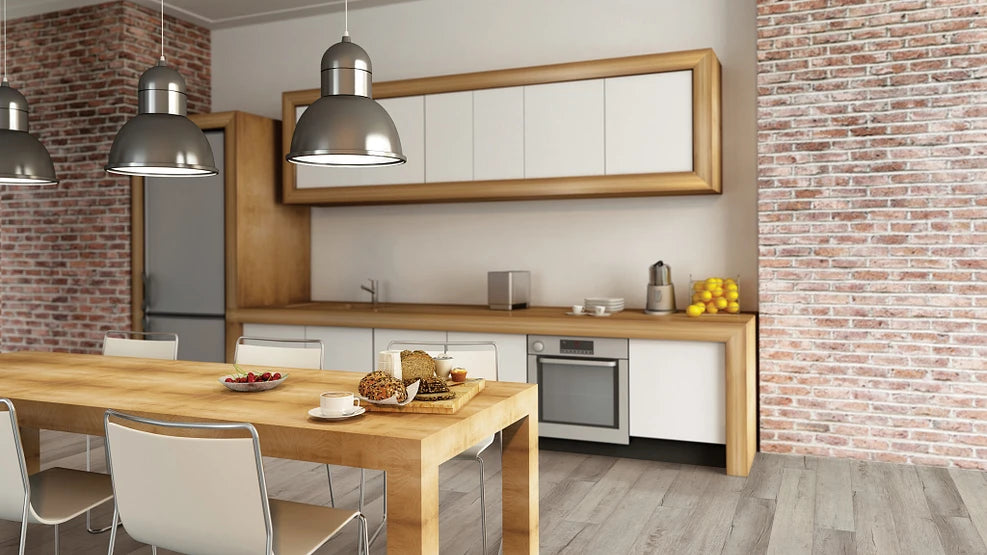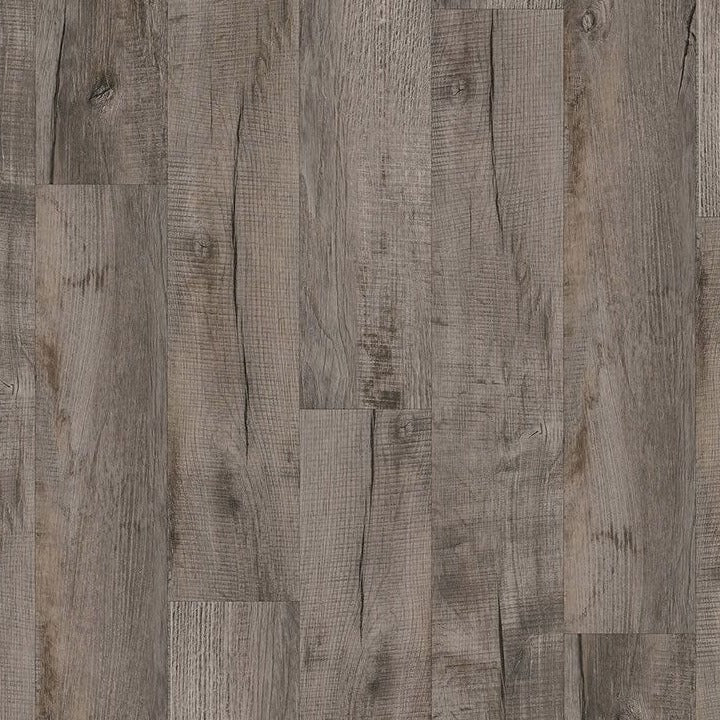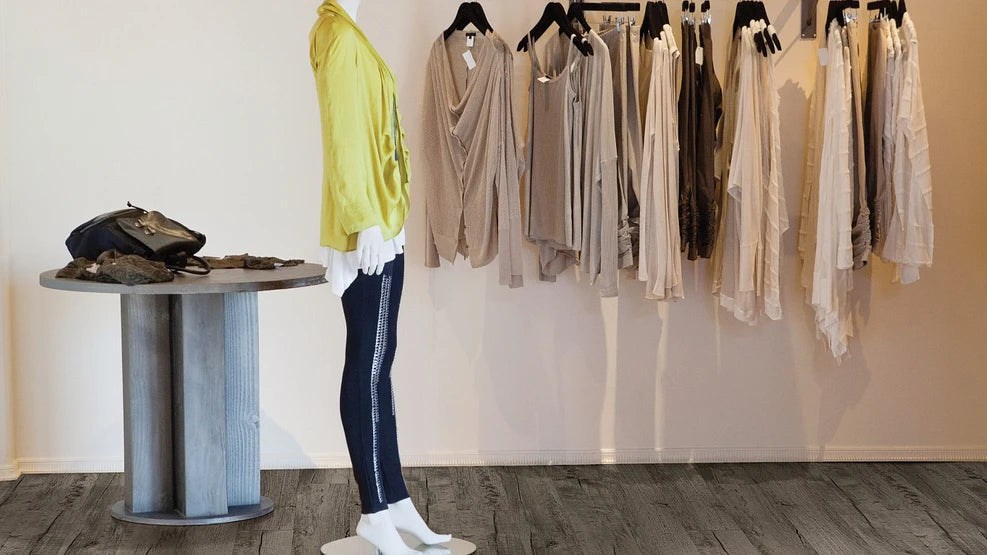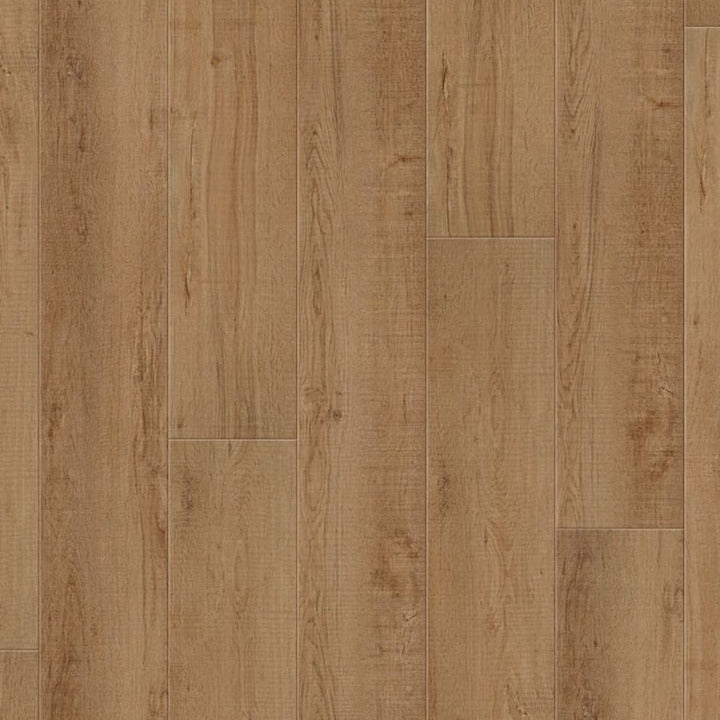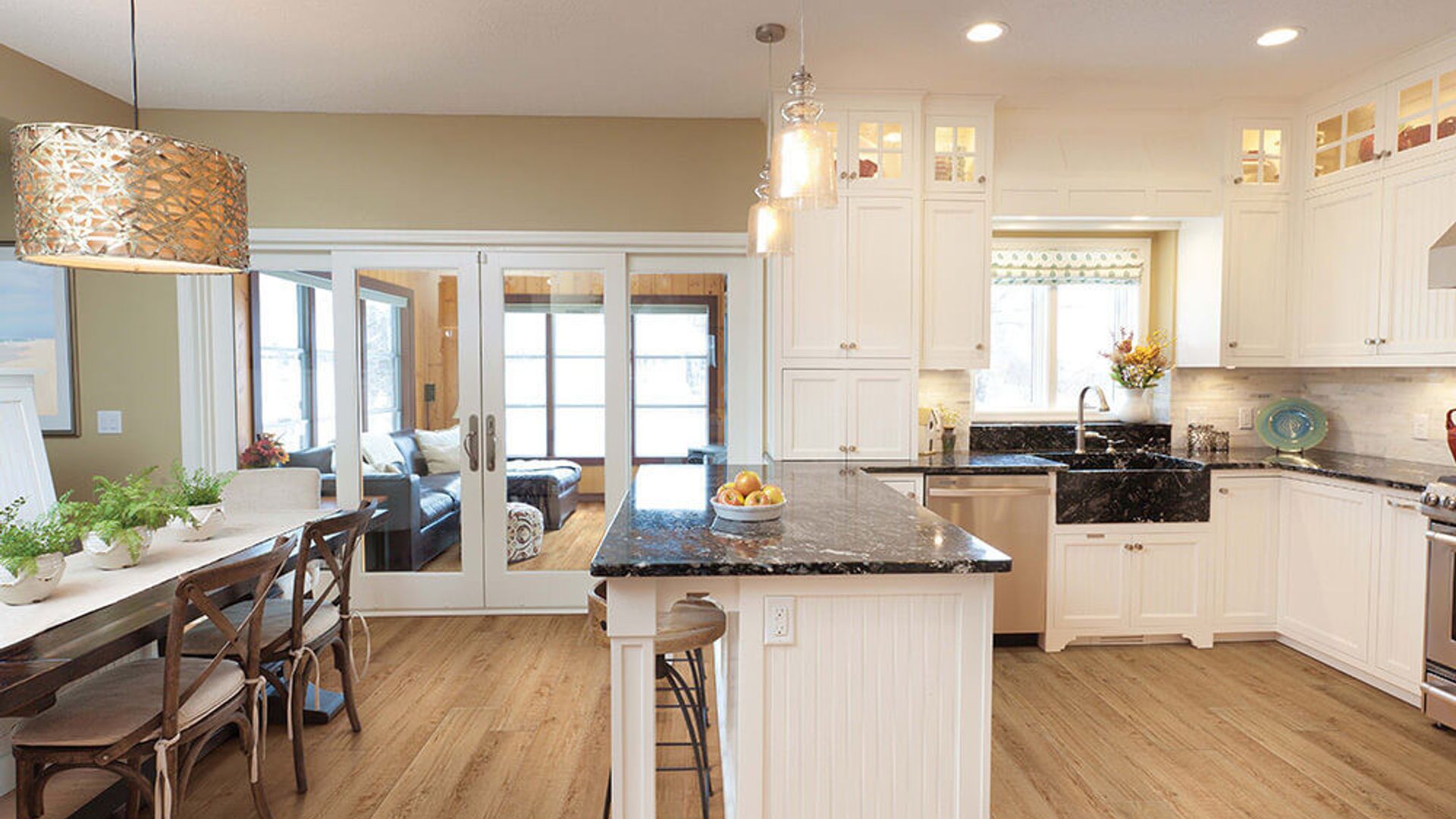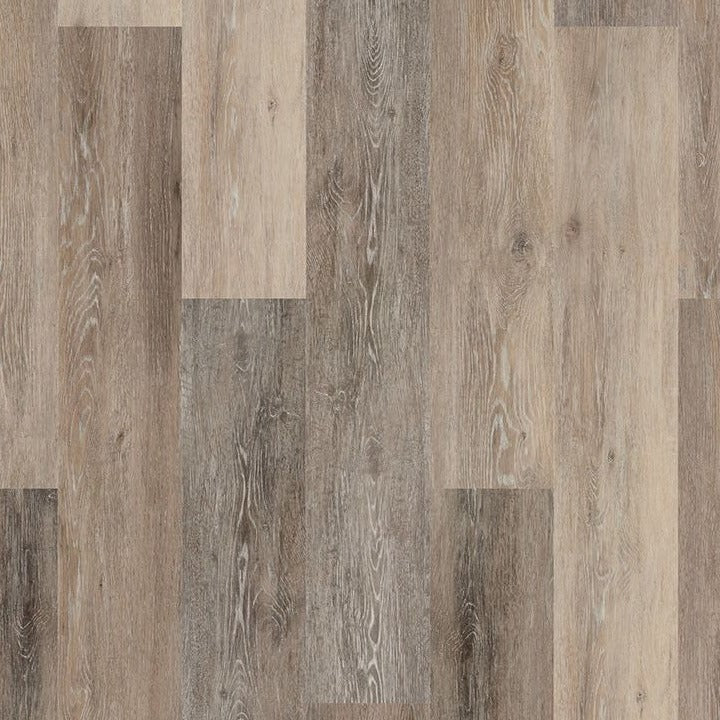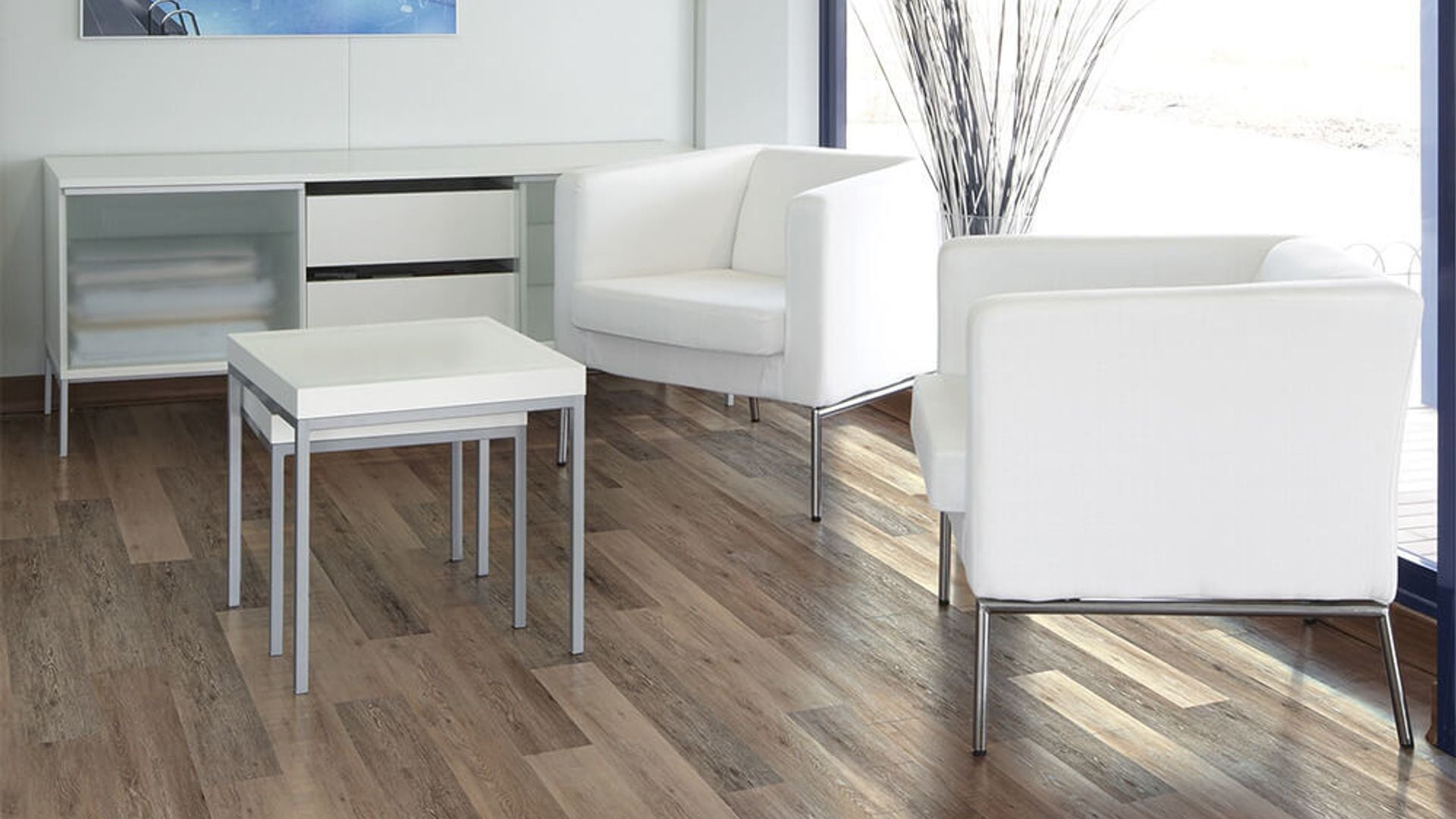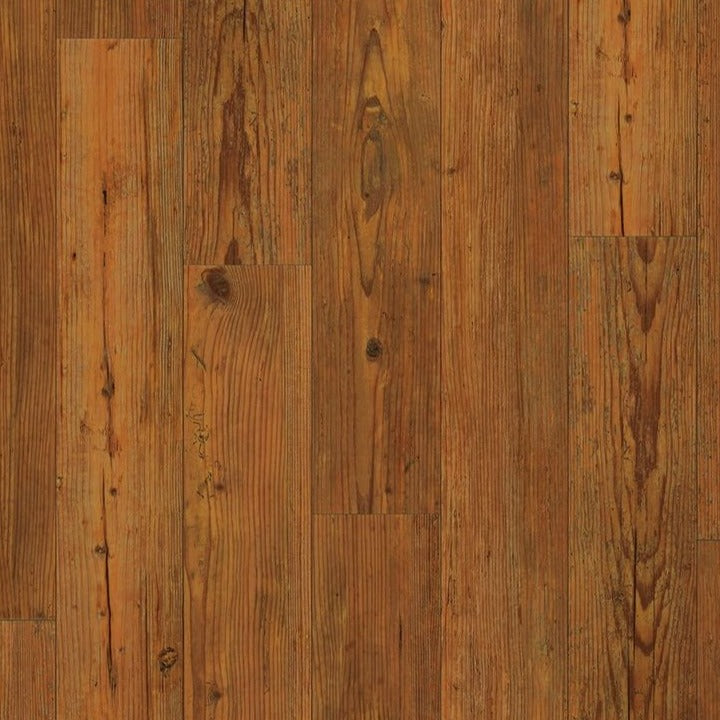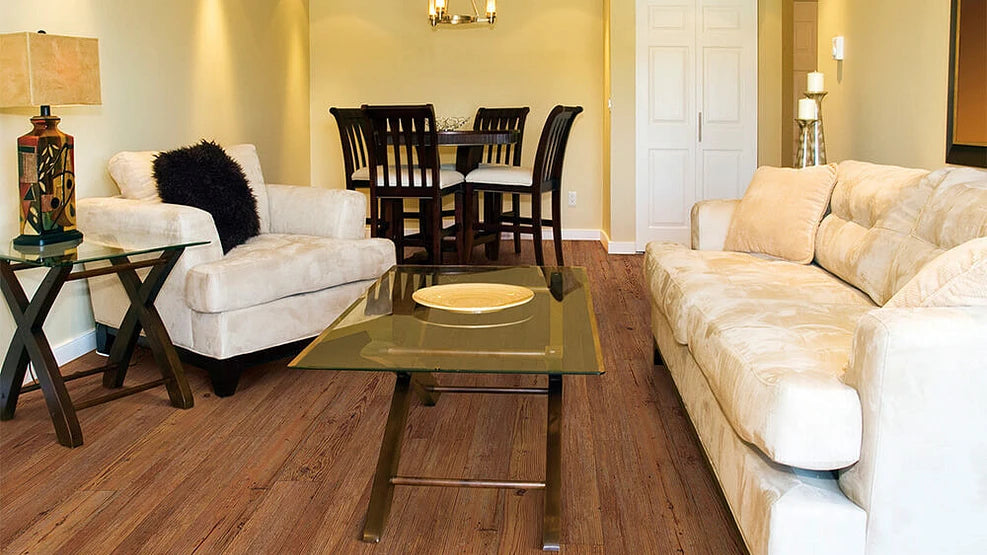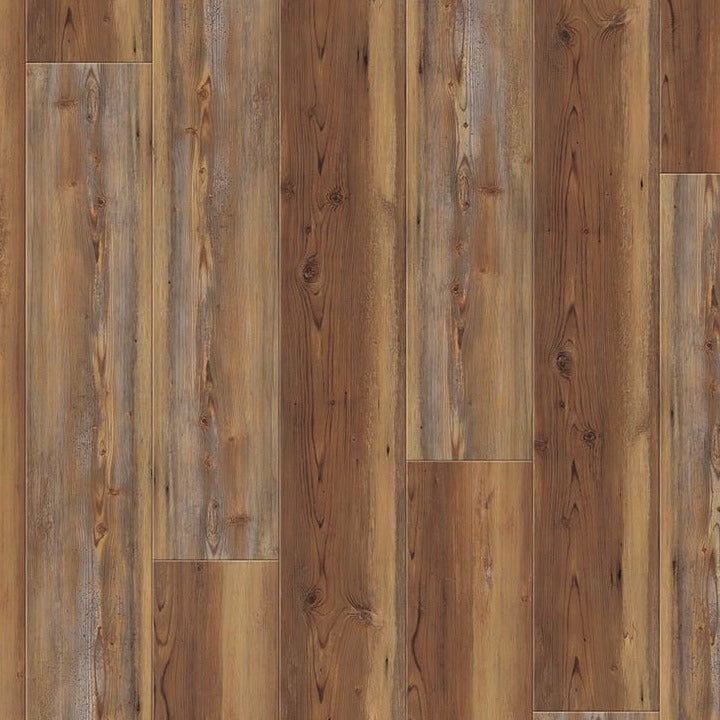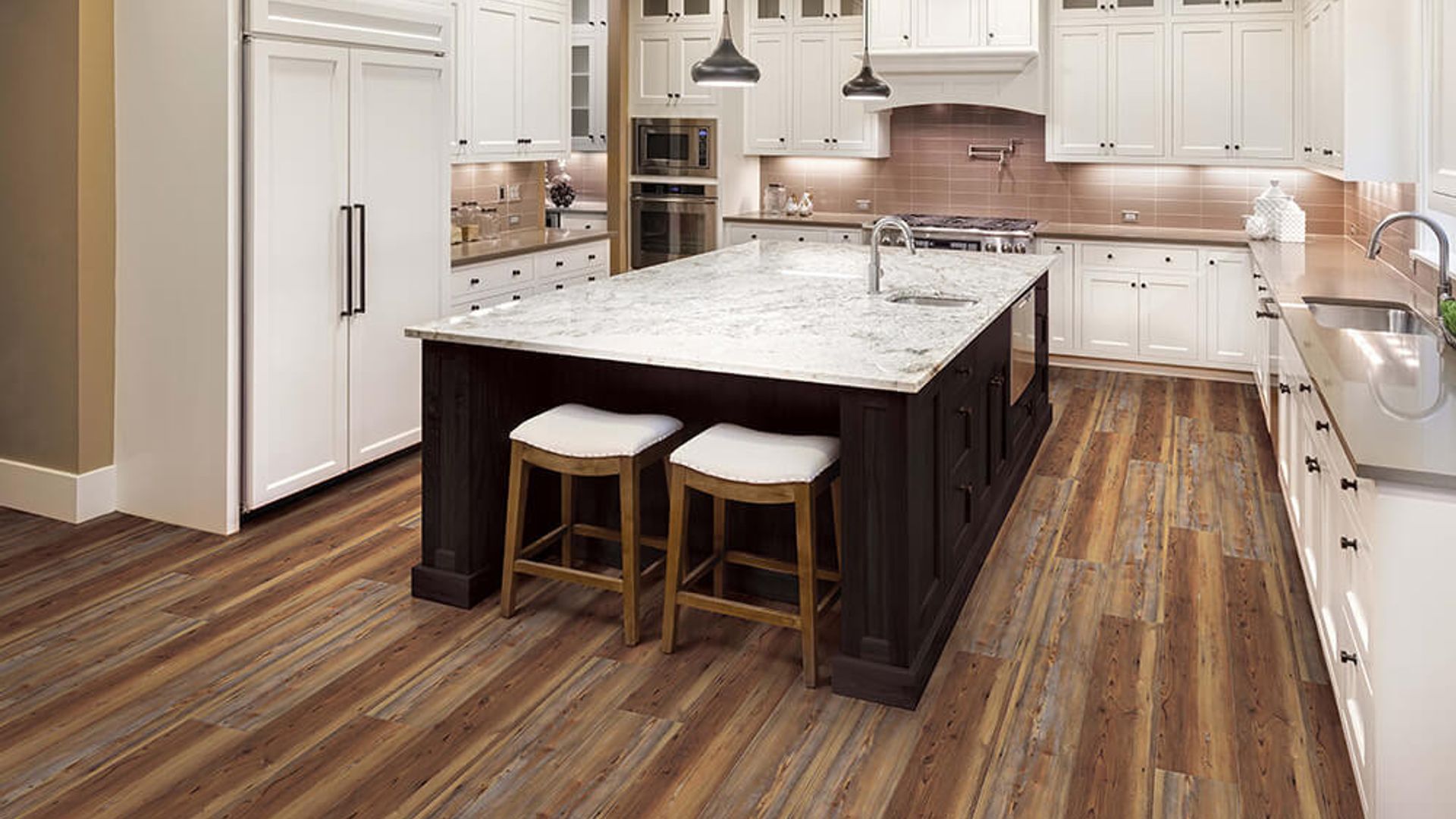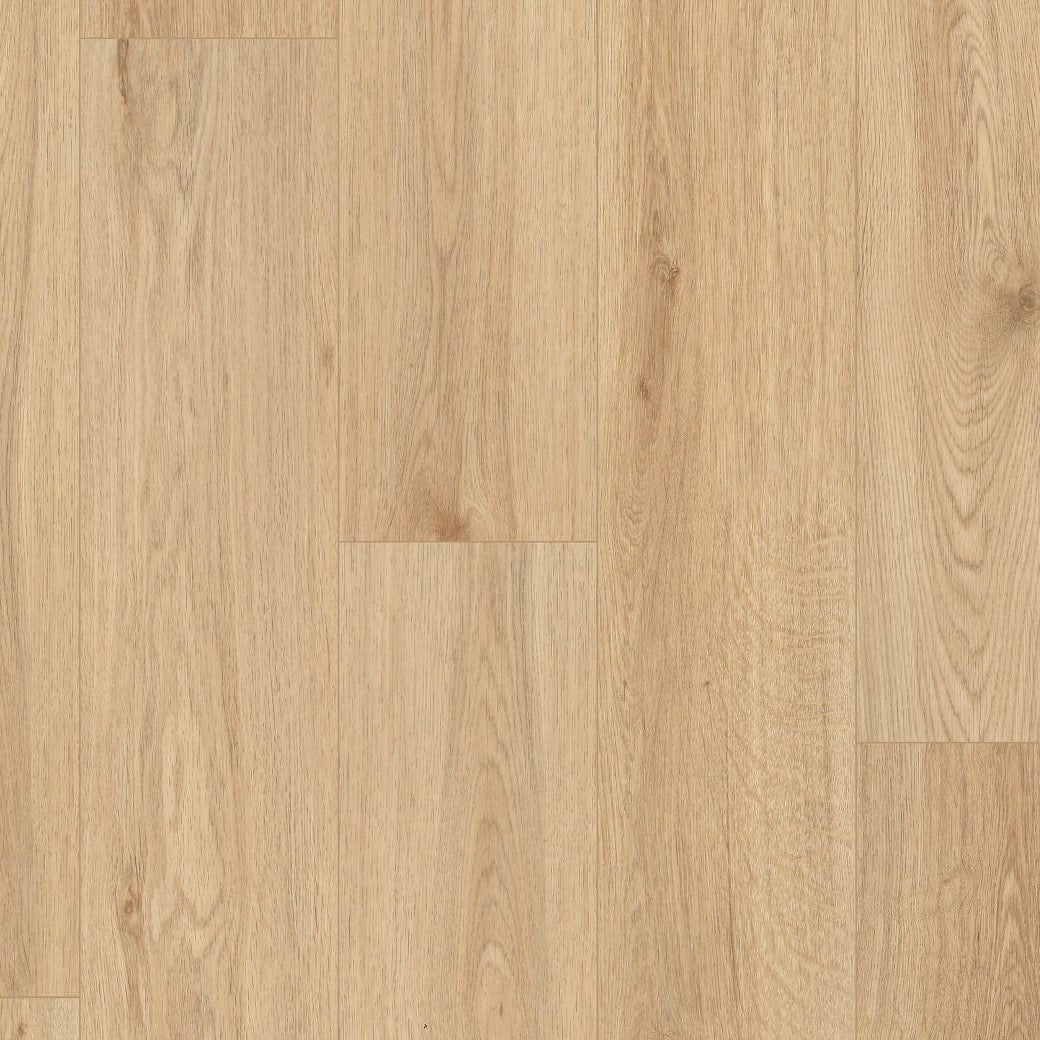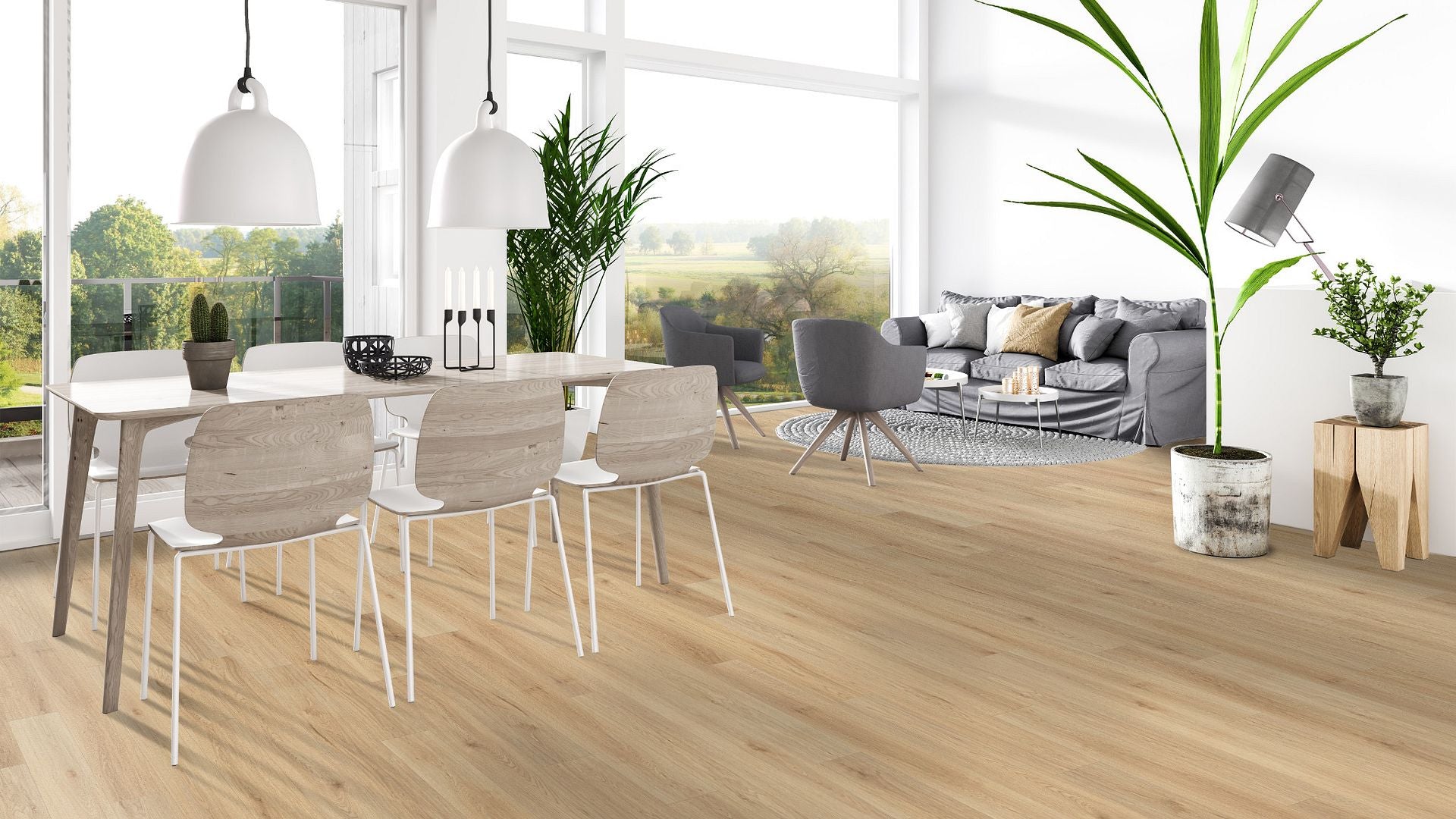Not all flooring is created equally. If you make the wrong choice, your flooring might not hold up.
For example, some flooring will resist water and moisture, while others will not. In a space that’s constantly exposed to water, such as a kitchen, food prep area, bathroom, or building entrance, the clear choice is water-resistant or waterproof flooring.
Aesthetics are also important, and you may prefer the look of hardwood or stone flooring because of its warm tones and classic appeal.
How do you get both? With vinyl plank flooring, of course.
What Is Vinyl Plank Flooring?
Vinyl plank flooring is basically strips of vinyl that measure between 4.5" and 7" wide and between 48" and 70" long.
It comes in various finishes that mimic wood, including fruit woods, hickory, and walnut. There are also vinyl planks that resemble marble, slate, or Travertine.
Many vinyl planks are backed with felt or cork for a flexible, soft surface to walk and stand on. Installation of vinyl plank flooring usually involves gluing the individual planks directly to the subfloor, but it also comes in peel-and-stick versions.
Also referred to as luxury vinyl plank flooring or LVP, vinyl flooring is usually preferred over hardwood because of its durability, cost, and waterproofness. But when it comes to the latter, there are a lot more factors that come into play.
Is Vinyl Flooring Waterproof?
The answer is both yes and no.
Some luxury vinyl plank flooring is water-resistant, meaning it will withstand a certain amount of moisture without sustaining any damage. It’s ideal for spaces that may experience some moisture, such as an office or certain rooms in your home.
Those looking to install waterproof vinyl flooring that can withstand liquids and moisture can opt for luxury vinyl plank flooring. The combination of a durable wear layer and a waterproof core makes LVP an ideal flooring choice for spaces prone to moisture, such as kitchens, bathrooms, and basements.
Luxury vinyl floors are designed to resist water damage, making it easy to clean up spills and preventing water from seeping into the subfloor. But despite having waterproof vinyl plank flooring, the subfloor and underlayment should also be moisture-resistant to ensure maximum protection against water damage.
What Options Do I Have With Vinyl Plank Flooring?
As with many other materials used in commercial buildings and residential applications, there are many different luxury vinyl flooring types to choose from. The option you choose depends on your budget, the look you’re going for, and the space in which it will be installed.
A few vinyl plank flooring examples to consider include:
Luxe Plank Best: This is a tile vinyl flooring that recreates the look of authentic hardwood. Its thick material offers superior water and scratch resistance due to its advanced protective coating.
Luxe Plank Good: This tile vinyl flooring duplicates the beautiful look of hardwood floors and also provides water and scratch resistance. It holds up well against water and everyday wear, making it ideal for any room.
Luxe Plank Value: This is a budget-friendly way to get the look of authentic hardwood or natural stone without the hefty price. It’s also scratch and water-resistant, so it’s ideal for use in high-moisture areas.
Luxe Plank with FasTak Install: This comes in a variety of colors that resemble both wood and stone. Easy to install with a repositionable, pressure-sensitive adhesive that forms a secure bond over most subfloors.
Rigid-Core Luxury Vinyl Flooring: This is ideal for uneven subfloors and areas prone to high traffic, high impact, and high moisture. It’s 100% waterproof, easy to install, and durable, making maintenance and cleanup easy.
Luxe Plank Better Luxury Vinyl Tile: These peel, place, and press planks have beveled edges to create a true-to-life hardwood look. They’re sturdy and thick to provide exceptional water and scratch resistance.
Rigid Core Elements: This flooring can withstand it all—heavy traffic, impacts, and of course, moisture and water too. It’s an ideal material for any room in your home or commercial building.
Choosing the right vinyl plank flooring for you will depend on the household’s or your space’s needs and your personal preference. If unsure, it is best to do lots of research and connect with an expert to help you make the smart choice.
Waterproof Vinyl Flooring: Vinyl Tiles vs. Planks
When installing waterproof luxury vinyl flooring, there are two main types of vinyl floors: tiles and planks. Luxury vinyl tile (LVT) flooring comes in square-shaped pieces and a variety of sizes, while LVP is rectangular and often imitates the look of hardwood flooring.
Both luxury vinyl flooring options are highly durable and waterproof, making them ideal for use in moisture- and spill-prone areas. However, homeowners often prefer waterproof luxury vinyl planks due to their more natural and realistic appearance and their ease of installation.
What about Stone Polymer Composite (SPC) Flooring?
When it comes to waterproof floors, SPC vinyl flooring is another clear contender. SPC is made of a stone-plastic composite core, making it highly durable and resistant to water damage.
LVP and LVT, on the other hand, have a PVC core, which makes them water-resistant but not entirely waterproof. While they can withstand exposure to moisture and spills, excessive water exposure can cause damage over time. It’s essential to wipe up any spills immediately and avoid leaving standing water on the floor for extended periods to maintain the flooring’s water-resistant properties.
All three flooring options, LVP, LVT, and SPC, are highly water-resistant. However, SPC flooring is considered the most waterproof of the three. The downside is that it is relatively more expensive than its luxury vinyl flooring counterparts.
Again, choosing a waterproof luxury vinyl flooring option will depend on your needs and preference. Of course, budget is a clear factor to consider as well. For those who are on a tight budget, choosing luxury plank or tile flooring is the most cost-efficient solution. After all, they are waterproof, get the job done, and don’t burn a hole in your pocket.
Proper Vinyl Flooring Maintenance
Over time, dirt, dust, and other debris can accumulate on the surface of vinyl flooring, leading to scratches, scuffs, and other forms of damage. Add to that exposure to sunlight and other environmental factors, which can cause the vinyl to fade or discolor.
To keep vinyl floors in optimal condition, it is essential to properly clean and maintain vinyl flooring to extend their quality and longevity. Regular maintenance can also help prevent the growth of mold or mildew, which can be harmful to your health.
Tips on Cleaning and Maintaining Vinyl Flooring
By cleaning the floors regularly and protecting them from excessive sunlight and moisture, you can help ensure that they stay in good condition for years to come.
Here are some dos and don’ts when it comes to vinyl flooring:
-
Wipe up spills immediately with a clean, damp cloth to prevent staining and damage to the floor.
-
Sweep or vacuum regularly to remove dirt and debris. Use a soft-bristled brush on your vacuum to avoid scratching the surface.
-
Use a damp mop or microfiber cloth with a mild cleaner specifically formulated for vinyl flooring. Avoid using harsh chemicals or abrasive cleaners that can damage the surface.
-
Avoid using steam cleaners or excessive water when cleaning vinyl flooring, as this can cause the adhesive to loosen and damage the planks or tiles.
-
Use felt pads on furniture legs to prevent scratches and scuffs on the floor.
-
Place mats or rugs in high-traffic areas or areas where spills are likely to occur to protect the flooring.
-
If your vinyl flooring has tough stains that won’t come off with regular cleaning, you can use a vinyl floor cleaner specifically formulated for removing tough stains. Be sure to revisit the manufacturer’s instructions.
Is vinyl flooring waterproof? The answer may be yes, but it still needs proper care and maintenance to keep it elegant and durable for years.
Get Vinyl Plank Flooring for Durability and Water Resistance
Vinyl plank flooring is an extremely durable, long-lasting product for most applications. If it is installed and cared for properly, it can last as long as 20 years in a residential setting.
Its clear top coat wear layer protects the floor from scratches, stains, and daily wear and tear. The thickness of the wear layer can vary depending on the quality and brand of the flooring but generally ranges from 4 to 40 mils. The thicker the wear layer, the more durable the flooring will be.
Moreover, luxury vinyl flooring is resistant to moisture, mold, and mildew, which can also contribute to its longevity.
If you’re looking at installing vinyl floors you won’t have to replace anytime soon, a vinyl plank option is a good choice.
Still not sure whether a vinyl floor is right for you? Contact us, and we’ll gladly discuss your project and offer our professional opinion and advice.


